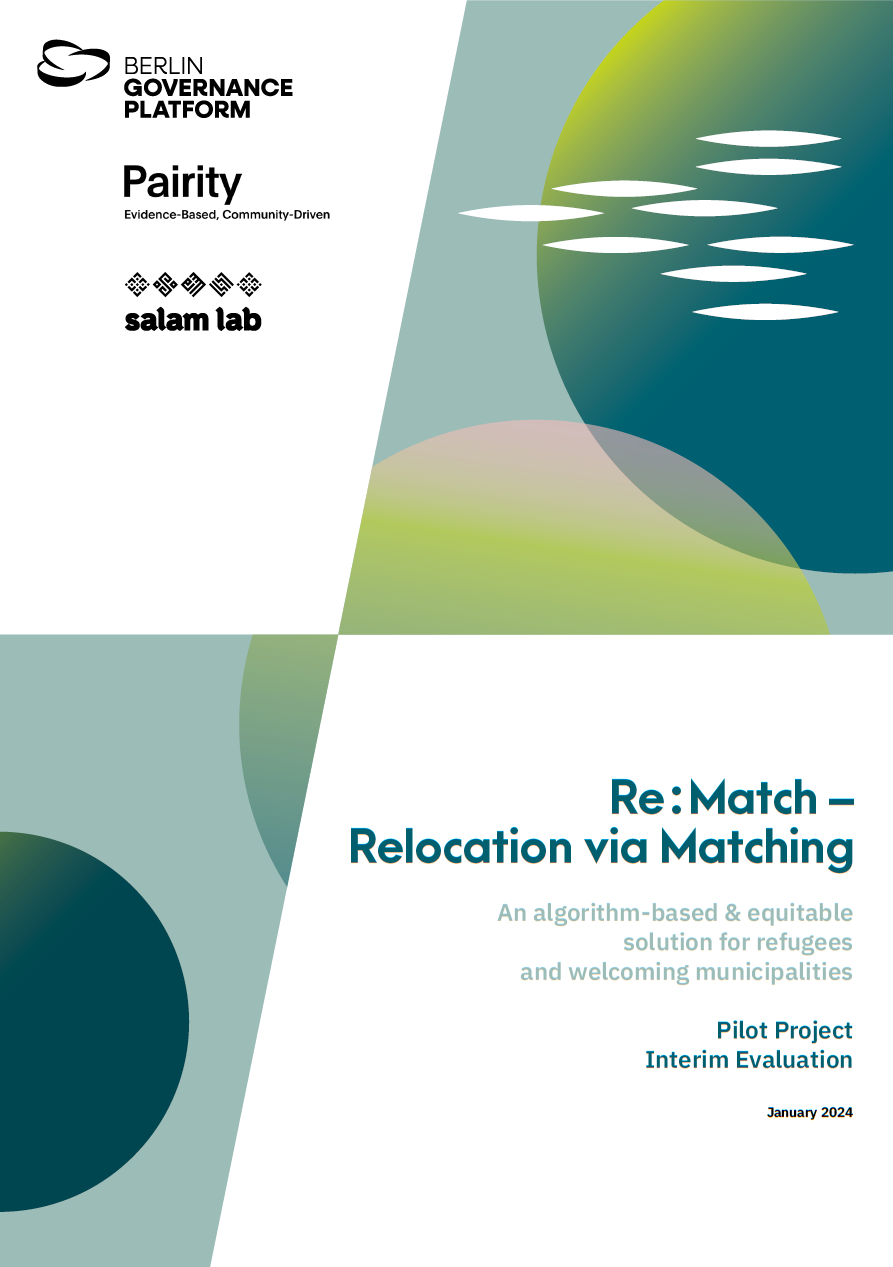Interim Evaluation Report
Re:Match – Relocation via Matching.
An algorithm-based and equitable solution for refugees and welcoming municipalities.
Re:Match is being evaluated in collaboration with the project partner Pairity. All results in this report are based on data from participants and cities collected through questionnaires, interviews and evaluation workshops.
Share this Report on a platform of your choice!
With Re:Match, the relocation of asylum seekers within the EU was successfully implemented for the first time using an algorithm-based matching process. In the first project year 2023, 78 Ukrainian asylum seekers in Poland were matched directly with six German cities and supported in the practical implementation of their relocation. Based on the evaluation of the first relocation phase, the interim evaluation of Re:Match presents exciting project data and results and explains the underlying processes and technical features.
Re:Match is being evaluated in collaboration with the project partner Pairity. All results in this report are based on data from participants and cities collected through questionnaires, interviews and evaluation workshops.
With Re:Match, the relocation of asylum seekers within the EU was successfully implemented for the first time using an algorithm-based matching process. In the first project year 2023, 78 Ukrainian asylum seekers in Poland were matched directly with six German cities and supported in the practical implementation of their relocation. Based on the evaluation of the first relocation phase, the interim evaluation of Re:Match presents exciting project data and results and explains the underlying processes and technical features.
Re:Match is being evaluated in collaboration with the project partner Pairity. All results in this report are based on data from participants and cities collected through questionnaires, interviews and evaluation workshops.
Share this Report on a platform of your choice!
Based on the first project evidence, another report formulates promising findings and recommendations for decision-makers from politics, cities and civil society.
You can download this second report here: “Re:Match as an innovative tool for the relocation of protection seekers. Findings and recommendations for a participatory distribution and reception in European municipalities utilising algorithm-based matching.”





